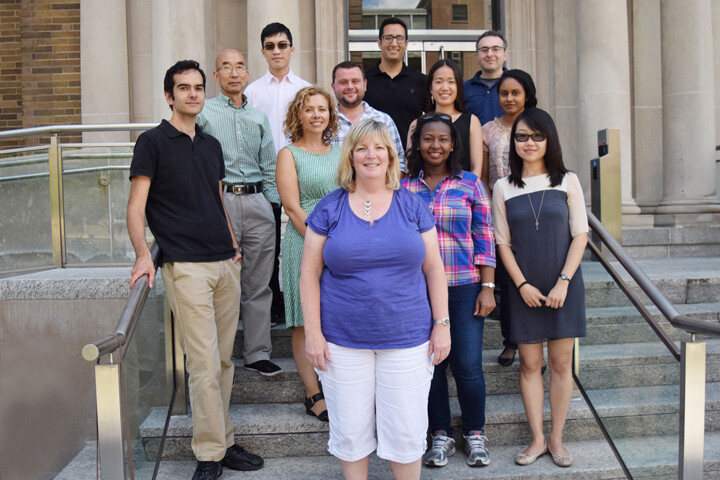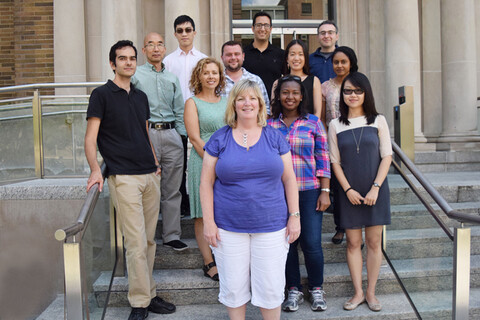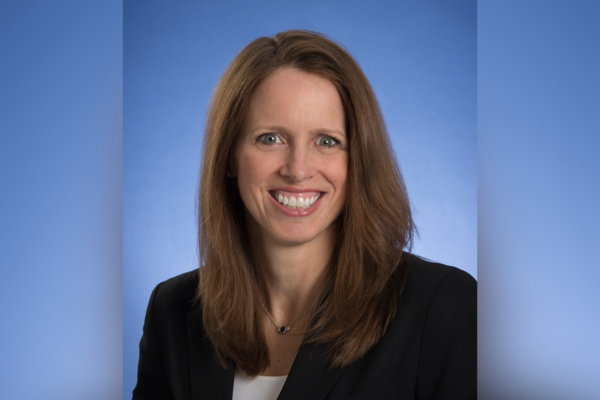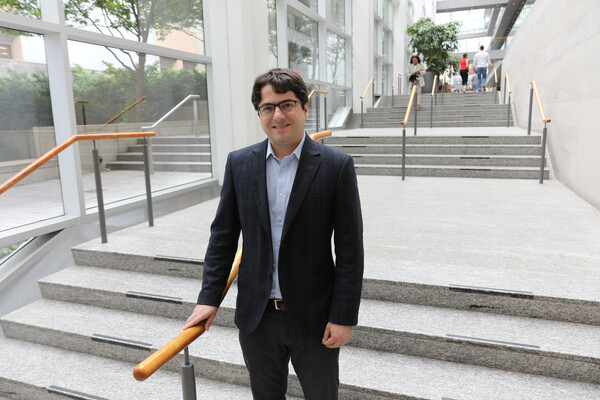Mobile Menu
- Education
- Research
-
Students
- High School Outreach
- Undergraduate & Beyond: Community of Support
- Current Students
- Faculty & Staff
- Alumni
- News & Events
- Giving
- About

Katie Babcock

Her research has helped us understand why blood vessels narrow and form plaques, causing heart attacks and strokes. Now Michelle Bendeck, a Professor in the Faculty of Medicine’s Department of Laboratory Medicine and Pathobiology, is set to transform the future of heart health as part of the Ted Rogers Centre for Heart Research.
Opening in the fall of 2015, the centre will unite basic, translational and clinical researchers from the University Health Network, the Hospital for Sick Children and the University of Toronto. The centre is named after Ted Rogers, the media mogul and philanthropist who died of congestive heart failure in 2008. In his memory, the Rogers Foundation donated a landmark $130 million, which has been matched by the three institutions for a total of $269 million.
“This centre represents a completely integrated spectrum — from the young to the very old, and from basic discovery research to state-of-the-art clinical care research — the possibilities are endless,” said Bendeck.
Close to one million Canadians are currently living with heart failure, and 50,000 new cases are diagnosed each year. The goal of the new partnership is to dramatically improve the future of heart health for children, adults and their families.
“We’ve collaborated with many people over the years, but this centre brings us into close proximity with some of the best labs in the city and the world,” said Bendeck. “It’s going to revolutionize heart failure research.”
Within the group, Bendeck will join the Ted Rogers Translational Biology and Engineering Program — a joint venture between U of T’s medical and engineering faculties. Bendeck’s lab will focus on the changes and conditions in blood vessels that lead to heart failure. She studies atherosclerosis, or hardening of the arteries, and how to prevent plaques from forming and rupturing in blood vessels. These plaques can lead to heart attacks — one of the leading causes of heart failure.
Since Bendeck’s research focuses on molecular processes, her findings apply to many areas of heart failure. As a result, her lab will closely collaborate with researchers involved in regenerative medicine and tissue engineering. These researchers will study how to regenerate the failing heart using stem cells, how to prevent fibrosis and stiffening of heart and vascular tissues, and others will focus on tissue engineering for heart valve replacements.
“Heart failure is a very complicated disease. It’s influenced by many factors and it’s important to recognize that it’s not just isolated to the heart,” said Bendeck. “The heart can fail as a result of disease in the blood vessels and our research can address this issue.”
Bendeck first started her lab in 1995. Since then she has had 56 publications and supervised 54 trainees. As a leader in the cardiovascular research community, she has been a Career Investigator of the Heart and Stroke Foundation of Ontario for ten years and has served for two years as the President of the Canadian Society of Atherosclerosis, Thrombosis and Vascular Biology.
Beyond her personal success, her former trainees have secured influential positions in a diverse range of careers. For example, Peter Sabatini is now Director of Clinical Laboratory Genetics at North York General Hospital, Eser Adiguzel is Director of Research and Development at Lasik MD and Christopher Franco is a cardiology resident at the University of British Columbia.
“Michelle’s been a great mentor. She takes a lot of time out of her schedule to meet with students,” said Josh Lopes, one of her current graduate students. “Doing my PhD has matured me in a way that I didn’t necessarily expect. Michelle has taught me how to think critically and how to approach problems in all aspects of my life.”
As Bendeck prepares to move, she reflects on the past and looks to the future.
“I’ve had a successful career so far and I’m looking forward to this amazing opportunity. Our overall goal is to make the Ted Rogers Centre for Heart Research one of the top cardiac research centres in the world.”

